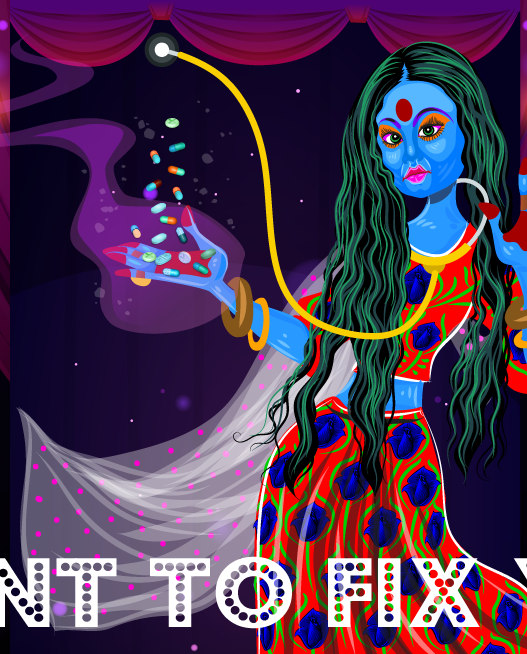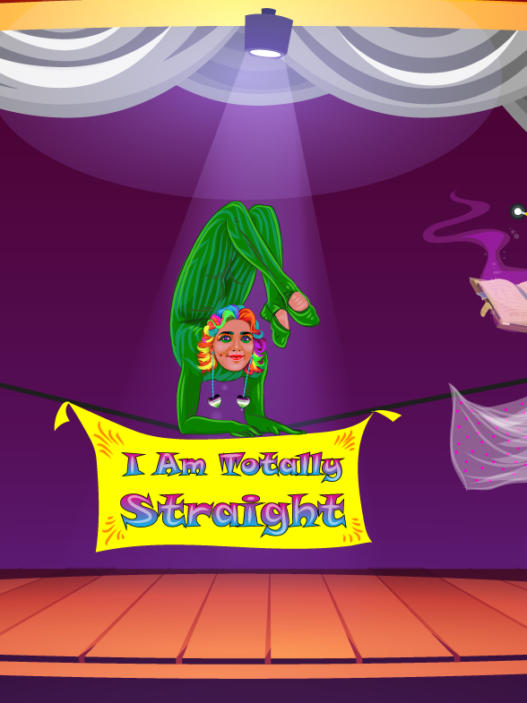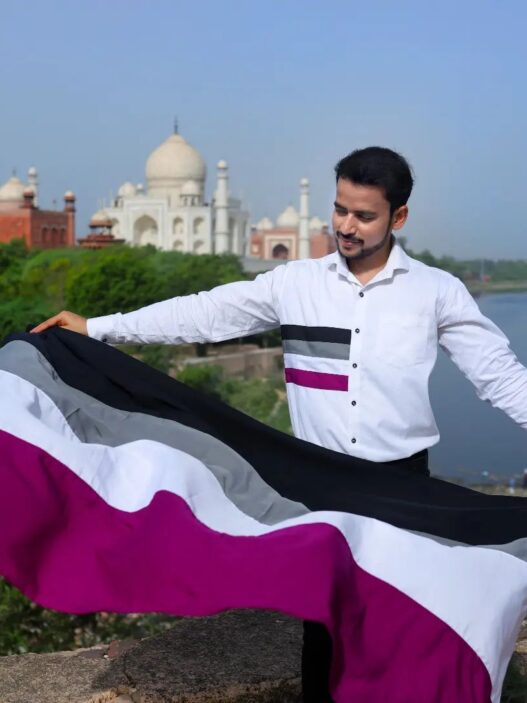Name: Ayan ( Pseudonym)
Age: 26
Country: Bangladesh
Ayan felt an overwhelming sense of shame as his friends, Kayes and Farhan, teased him. “You haven’t even kissed her today? How hot was she?” There was a hint of mocking in Kayes voice. Farhan added, “Are you gay? Try being with a man then.” Kayes chimed in, “Oh, he’s probably a patient of some sex herbalist. He won’t do it without Kolkata Herbal!”
Their words, meant as jokes, only made Ayan feel worse. They were his close friends, but their laughter and ridicule made him feel more isolated. He sat in silence, until Rahat, his childhood friend, tried to comfort him. “You should see a doctor, man. Maybe with some treatment, you’ll start finding everyone attractive.”
Ayan sighed and confided in Rahat. “I’ve been talking to this girl, Reshma, online for a long time. We’ve grown really close, and today we finally met in person. Everything was fine, but when she tried to get closer, to kiss me… I just didn’t feel anything. I don’t know what’s wrong with me.” He felt lost, wondering if he was sick or if something deeper was going on.
That night, as he lay in his room, his phone played a video of a couple passionately kissing. Watching them stirred a strange mix of feelings—excitement and frustration. Why was it so easy to feel aroused by something on a screen, yet so difficult in real life? Is something wrong with him? His thoughts spiraled, and after searching for answers online, he decided to visit an herbal doctor. But nothing changed.
Desperate, Ayan ordered Viagra, hoping it would make a difference. He arranged to meet an attractive girl at a hotel in Dhaka, hoping this time would be different. But even with the drug, nothing changed. His body was aroused, but he still didn’t want to touch her. He couldn’t understand why. Was he too picky? The girl was beautiful, but nothing clicked. When he couldn’t perform, she laughed. “You’re here to hook up, and even with the meds, you still can’t get it together?” Her words stung, and Ayan shrank in embarrassment.
Shame weighed heavily on Ayan, and at Rahat’s insistence, he reluctantly agreed to see a sexologist. Dr. Abdullah greeted him with a voice that carried a certain authority.
“Mr. Ayan,” the doctor began, glancing over his notes, “I’ve thoroughly reviewed your case. It seems you’ve been grappling with your sexual orientation for a while now. Tell me, what do you feel when you’re not sexually attracted to anyone, regardless of gender?”
“Life isn’t about waiting for the storm to pass; it’s about learning to dance in the rain and finding joy in the midst of life’s challenges.”
Vivian Greene
Ayan’s stomach knotted with anxiety. After a pause, he confessed, “I’m scared. Scared of dying alone, scared of never having a partner, scared of what society will think of me, scared of being judged and shunned.”
The doctor leaned in, hands clasped, his eyes steady on Ayan. “Mr. Ayan, from a clinical standpoint, it appears you’re experiencing Hypoactive Sexual Desire Disorder (HSDD). It’s characterized by a reduced or absent interest in sex—often misunderstood as something else. But don’t worry, we can work through this together.”
Ayan felt the weight of the words press down on him, leaving him cold. HSDD? It felt like a punch to the gut. Where he needed for understanding and acceptance, but instead, Ayaan was met with a misdiagnosis that overlooked the core of who he truly was. As he left the chamber with many medicine, a sense of brokenness gnawed at him. Deep down, he didn’t yet know that there was nothing wrong with being asexual, even if others failed to see it.
Ayan started medications ,but instead of finding relief, things only worsened. Frustration consumed him, and he began compulsively masturbating—four to six times a day. His once-strong body grew weak, his energy drained, and his academic performance plummeted. Once a top student, Ayan was now failing, trapped in a cycle of anxiety, depression, and isolation.
He felt trapped. Even though he was overwhelmed by desire, no one sparked any real attraction. He couldn’t connect with anyone—neither emotionally nor physically. He began therapy, hoping for answers, but it only heightened his anxiety. His libido increased, but he still didn’t feel any romantic or sexual attraction, to either girls or boys. The therapy sessions became nightmares, making him question if he was truly sick or if something was uniquely wrong with him.
As his loneliness deepened, Ayan spiraled further. He felt like an outsider, the only one unable to connect with others while everyone else was in relationships. He started contemplating suicide, overwhelmed by self-loathing and the constant mockery from others.
The doctor had prescribed him sleeping pills to help him cope. One night, exhausted by it all, he made a decision. He left the hostel, bought more medication, and returned to his room. Locking the door behind him, he swallowed all the pills at once.
The next day, his friends found him unconscious, his door broken down in a desperate attempt to save him. He was rushed to the hospital, but there was no family to be notified. Ayan had spent most of his life in residential schools and now relied solely on his hostel. There was no one to take special care of him, and he had become a burden in the eyes of others.
As the soft sunlight streamed through the hospital windows, Ayan lay there, barely alive. His body was weak, the result of 2nd suicide attempt when he had cut his arm’s vein. His roommate had found him in time, but the doctors were unsure how long he could hold on. Despite everything, Ayan’s thoughts remained clouded by the same desperation: the belief that next time, he wouldn’t fail at ending his pain.
This case study, based on a phone call from Dhaka, Bangladesh, recounts the experience of a young boy who was prescribed medication to address what was perceived as a high libido after he expressed a lack of interest in sexual intimacy or having a sexual partner. While the medication heightened his libido, it did not increase his sexual attraction, leaving him to grapple with the distressing effects of an artificially intensified libido. To protect privacy, all names used in this study are fictional.














